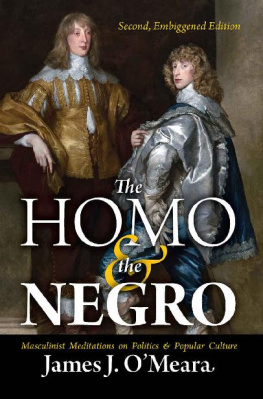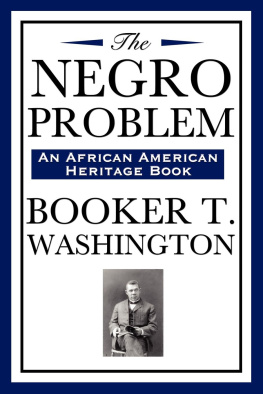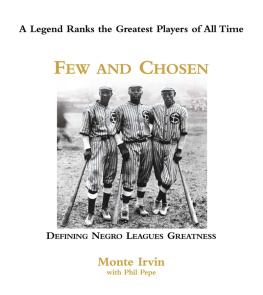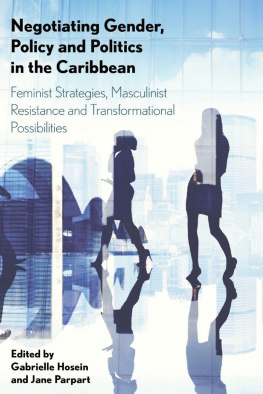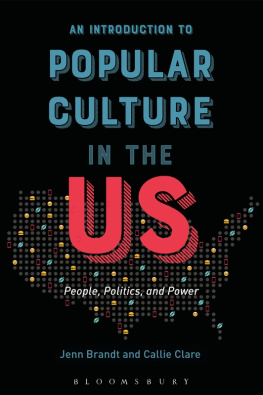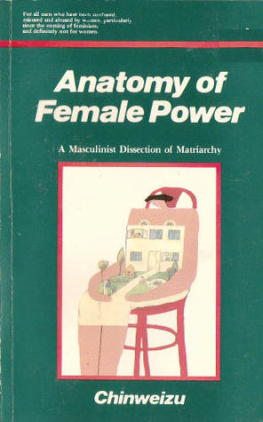O’Meara - The Homo and The Negro : masculinist meditations on politics and popular culture
Here you can read online O’Meara - The Homo and The Negro : masculinist meditations on politics and popular culture full text of the book (entire story) in english for free. Download pdf and epub, get meaning, cover and reviews about this ebook. year: 2017, publisher: Counter-Currents Publishing Ltd., genre: Religion. Description of the work, (preface) as well as reviews are available. Best literature library LitArk.com created for fans of good reading and offers a wide selection of genres:
Romance novel
Science fiction
Adventure
Detective
Science
History
Home and family
Prose
Art
Politics
Computer
Non-fiction
Religion
Business
Children
Humor
Choose a favorite category and find really read worthwhile books. Enjoy immersion in the world of imagination, feel the emotions of the characters or learn something new for yourself, make an fascinating discovery.
The Homo and The Negro : masculinist meditations on politics and popular culture: summary, description and annotation
We offer to read an annotation, description, summary or preface (depends on what the author of the book "The Homo and The Negro : masculinist meditations on politics and popular culture" wrote himself). If you haven't found the necessary information about the book — write in the comments, we will try to find it.
O’Meara: author's other books
Who wrote The Homo and The Negro : masculinist meditations on politics and popular culture? Find out the surname, the name of the author of the book and a list of all author's works by series.
The Homo and The Negro : masculinist meditations on politics and popular culture — read online for free the complete book (whole text) full work
Below is the text of the book, divided by pages. System saving the place of the last page read, allows you to conveniently read the book "The Homo and The Negro : masculinist meditations on politics and popular culture" online for free, without having to search again every time where you left off. Put a bookmark, and you can go to the page where you finished reading at any time.
Font size:
Interval:
Bookmark:
T HE H OMO & THE N EGRO
M ASCULINIST M EDITATIONS ON
P OLITICS & P OPULAR C ULTURE
by
J AMES J . O M EARA
S ECOND, E MBIGGENED E DITION
E DITED BY G REG J OHNSON
Counter-Currents Publishing
San Francisco
2017
Copyright 2017 by James J. OMeara
All rights reserved
Cover image:
Anthony van Dyck,
Portrait of Lord John Stuart and his brother Lord Bernard
Stuart (later Earl of Lichfield), circa 1638,
National Gallery, London
Cover design by Kevin I. Slaughter
Published in the United States by
C OUNTER- C URRENTS P UBLISHING L TD.
P.O. Box 22638
San Francisco, CA 94122
USA
http://www.counter-currents.com/
Hardcover ISBN: Paperback ISBN: 978-1-940933-14-6
E-book ISBN: 978-1-940933-15-3
The Library of Congress has catalogued the first edition as follows.
OMeara, James J., 1956-
The homo & the Negro masculinist meditations on politics & popular culture / by James J. O'Meara.
p. cm.
Includes bibliographical references and index.
ISBN 978-1-935965-47-3 (hardcover : alk. paper) -- ISBN 978-1-935965-48-0 (pbk. : alk. paper) -- ISBN 978-1-935965-49-7 (ebook : alk. paper)
1. Masculinity. 2. Conservatism. 3. Homosexuality. I. Title. II. Title: Homo and the Negro masculinist meditations on politics and popular culture.
BF692.5.O596 2012
306--dc23
2012028370
C ONTENTS
2.
3.
12.
13.
15.
17.
Brigit Brat, d. 2011
Sound
Alisdair Clarke, d. 2008
Vision
F OREWORD
My many intellectual debts will be easily seen in the pages that follow. But first I must thank Greg Johnson, White Eminence of the North American New Right, for encouraging me to write for his flagship blog, Counter-Currents , and then having the notion that some of those pieces would look very nice between hard covers.
In writing these and others I have benefited from online discussions with Ean Frick as well as many commentators, including about half a dozen loyal, possibly deeply disturbed, Constant Readers of my blog, and real-time discussions with Collin Cleary, Jef Costello, and Derek Hawthorne.
I would also like to avail myself of the wise words of the moral philosopher Richard Taylor, who disclaimed the customary responsibility for any remaining errors, reasoning that one can only be responsible for what one is aware of, and if he had been aware of any errors, he would have corrected them.
Vive, vale!
James J. OMeara
Rust Belt, USA
June 13, 2012
You must choose, brothers, you must choose.
Brother J. C. Crawford, Zenta New Year Invocation
October 3031, 1968
The Psychedelic Stooges and The MC5
Russ Gibbs Grande Ballroom, Detroit
F IVE Y EARS O N:
P REFACE TO THE E MBIGGENED E DITION
When you can assume that your audience holds the same beliefs you do, you can relax and use more normal means of talking to it; when you have to assume that it does not, then you have to make your vision apparent by shockto the hard of hearing you shout, and for the almost-blind you draw large and startling figures.Flannery OConnor, Mystery and Manners In normal times, evil should be fought by good, but in times like this, well, it should be fought by another kind of evilAereon (Judi Dench) near the beginning of The Chronicles of Riddick (2004)Five years, what a surprise!David Bowie, Five Years from The Rise and Fall of Ziggy Stardust and The Spiders From Mars (1972)If, as Dr. Johnson said, no man but a blockhead ever wrote for anything but money, the author of this one must be a blockhead of Peanuts proportions.
At the risk of what has come to be called virtue-signaling, may I say that this was simply an attempt, not to make money, but to bring the Good News and to change the world for the better.
So what was I trying to do?
At the time, I was heavily reading the work of Julius Evola; this itself represented an evolution of sorts, as I had been introduced in my teens, through Alan Watts,
Evola, however, while firmly upholding the work of Gunon, took it in a new direction, one which emphasized social concerns and even geopolitics. This seemed much more interesting than just waiting around for the end of the Kali Yuga, however spectacular that promised to be.
Steadily searching the intertubes for more on Evola, one day I came across the writings of Alisdair Clarke, a theorist of what was then called the English New Right. Clarke had given Evolas work another turn of the screw, and developing certain hints in Evolas later books about Orders and Elites in the creation of Aryan culture, had begun to explore the historical role of the Mnnerbund , the bands of warrior youths, through his blog, Aryan Futurism .
A not entirely irrelevant point was that these bands were, as a friend once usefully put it, homoerotic though not necessarily homosexual. Jack Donovan, who would give this line of thought its most intensely practical developments, later began calling them androphilic.
At this point the penny dropped, and I had what might modestly be described as a world-shattering, epoch-making epiphany. As George Carlin said about capitalism, I had nailed together two things that had never been nailed together before.
There was a fatal inconsistency at the heart of the radical Right, which tirelessly banged on about The White Race, Western man, Aryan Culture, Odinism, etc., yet under the continuing widespread influence of what I came to call Judaic Family Values maintained a loathing of any hint of the androphilic associations that were characteristic of Aryan cultures and essential to the creation and preservation of those cultures.
As for the more moderate, traditional Right of the conservatives or Republicans, it was flawed as well; supposedly pragmatic and practical, their even more entrenched Christian homophobia prevented them from accessing the culture-creating and sustaining talents of the androphiles, leading to the Rights perennial status as beautiful losers.
Even Steve Sailer, one of the sharpest knives on the right side of the drawer, seems nonplussed:
As Ive mentioned before, the inner elite of the celebrated Black Lives Matter movement is heavily homosexual. I think that was part of BLMs appeal to political, NGO, and corporate elites: BLM seemed safer than the typical black agitators. These werent ex-con hard men like the Black Panthers of yore, these were irate lesbians and peevish gays. How much damage could they do? Well, judging from the extraordinary increase in black-on-black homicides since Ferguson, a lot.Contrarywise, the Left had reaped nothing but benefits from the perception of being the natural home of these confirmed bachelors, who contributed their unsurpassed talents in symbol manipulation, along with their disposable income and all that non-family time on their hands to the cultural triumph of the Left; while their contrived gay identity caused them to swerveto use Camille Paglias termfrom their role as guardians of traditional Western culture into lives of empty promiscuity and consumerism.
And yet, as I recalled from dim memories of New York clubland (as they say, if you remember Limelight, you werent there),
While some, like Paul Gottfried, have noted the rise to dominance of the originally and still predominantly Jewish NeoCons, (almost?) no one had sussed out that the rot had set in long before, in the open-air insane asylum of First Century Palestine.
I dont recall if Alisdair brought up the idea of developing these ideas myself, or if I was only inspired by his own blog (a new tool for dissemination of ideas at the time), but it seemed unusual enough and important enough that I decided to get this down in writing.
Since all this was taking place in the intersection of art, religion, and politics, it occurred to me that the best vehicle would be a Manifesto, as favored by groups ranging from the Rosicrucians to the Communists to the Surrealists and Futurists (Aryan Futurism, indeed!)
Next pageFont size:
Interval:
Bookmark:
Similar books «The Homo and The Negro : masculinist meditations on politics and popular culture»
Look at similar books to The Homo and The Negro : masculinist meditations on politics and popular culture. We have selected literature similar in name and meaning in the hope of providing readers with more options to find new, interesting, not yet read works.
Discussion, reviews of the book The Homo and The Negro : masculinist meditations on politics and popular culture and just readers' own opinions. Leave your comments, write what you think about the work, its meaning or the main characters. Specify what exactly you liked and what you didn't like, and why you think so.

